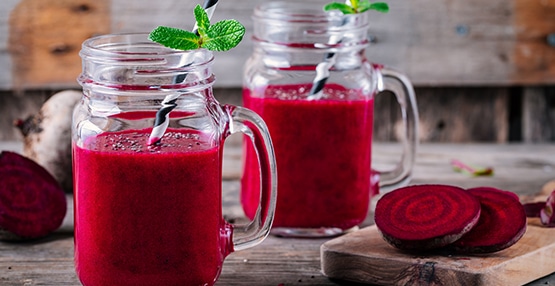
Is a Plant-Based Formula Right for Your Child?
Before choosing an enteral formula, ask yourself these six questions.
-When deciding on an enteral formula for your child, the first step isn't looking at specific brands. Instead, it's determining if the best choice is plant- or dairy-based.
Before we get to that, a quick primer: Standard enteral formulas, such as those from PediaSure and Kate Farms, are designed for kids with dietary issues or health conditions that make it difficult to gain normal weight and grow. They can be taken orally, like a shake, or given via a feeding tube. Likewise, they can be used as a sole source or as supplemental nutrition.
Don't confuse enteral formulas with infant formulas, which offer many of the nutritional benefits of mother's milk. Likewise, enteral formulas have no relation to milk alternatives, though plant-based versions of both are often recommended for kids who have dairy allergies or intolerances (more on that later).
If your pediatrician recommends an enteral formula, answering these six questions can help lead you to the best option for your child.
Question #1: Does my child suffer from a food intolerance?
If so, a plant-based formula may be a better choice. Digestive symptoms of intolerance include nausea, stomach upset, and diarrhea, which can result in bloody stools, weight loss, and concerns about growth.
A study conducted in conjunction with the Children's Center for Digestive Health Care in Atlanta looked at a small group of children who had feeding difficulties, including failure to thrive.
In an uncontrolled study, after the kids switched to a plant-based formula for three to nine months, 90 percent of them showed improved gastrointestinal tolerance and weight gain, according to study author Stan Cohen, M.D., pediatric gastroenterologist, cofounder of Nutrition4Kids, and author of What to Feed Your Baby.
"Truthfully, we're not exactly sure why these kids tolerated the plant-based formula better," he says. "There are many differences between plant-based and cow's milk–based formulas. Any one of those differences or a combination might have improved their tolerance."

Question #2: Does my child suffer from a food allergy?
Many allergy symptoms are similar to those of dairy intolerance but may be worse, or accompanied with other serious concerns like wheezing, vomiting, coughing, shortness of breath, hives, or swelling of the lips, tongue, or throat.
This happens because a child's immune system recognizes the protein in an animal-based milk as an invader, similar to an infection. That sets off an allergic reaction that releases chemicals like histamine, which increases inflammation throughout the body and stimulates the immune response that causes symptoms.
Because plant-based formulas don't have these same proteins, they may be a better option for children with a diagnosed milk allergy, says Dr. Cohen.
Note: Yes, children can be allergic to plant proteins, such as those from peas. If this is a concern, ask your pediatrician to guide you.
Question #3: Are the environmental benefits of plant-based formulas important to me?
Though this is an area of ongoing debate, many experts believe that plant-based eating is an environmentally conscious approach.
For example, Dana Hunnes, Ph.D., M.P.H., R.D., at UCLA writes that shifting away from animal-based foods could significantly reduce carbon emissions, lower water usage, and improve sustainability.
Hunnes cites a seminal University of California Davis study that found that a pound of beef and a gallon of milk both require at least 2,000 gallons of water to produce (mostly to grow food for the cows), whereas a pound of oats and tofu only around 300 gallons.
Question #4: Can my child get enough protein from a plant-based formula?
Many people believe it's difficult to get enough protein from a plant-based diet, but Hunnes writes that ounce-for-ounce, the amount of protein from plant sources is on par with animal sources—and plant-based formulas are teeming with nutrients like fiber, sterols, stanols, vitamins, and minerals.
"Plant proteins provide just as much nutritional value when they're used with other plant proteins or when they are supplemented with extra amino acids," says Dr. Cohen. "It's important to realize that almost all milks and formulas, animal- and plant-based, are supplemented to increase their nutritional value."
Fortified plant-based formulas are preferable to milk alternatives like almond, coconut, or rice milk, which all may have low protein amounts, says Dr. Cohen. Plus, nut-based options may trigger allergic reactions of their own.
Question #5: Are the ethical considerations important to me?
Some people choose to follow a vegetarian or vegan diet due to environmental concerns, while others do so for ethical or religious reasons. They see their diets as reflective of a desire to reduce or eliminate animal suffering, and that approach to life would likely extend to their children as well.
If that's the case, finding a nutrient-rich, plant-based formula would be a crucial part of ensuring a child's health without bending—or breaking—a fundamental ethics-based belief.
Question #6: Will my child face any unique challenges switching from animal- to plant-based?
Your child might already be on an animal-based formula, and now you're thinking about switching. Don't overthink it, says Dr. Cohen.
"It's easy for most children to make the change—in either direction," he says. "Some can switch from one to the other the same day. Others do fine when the change is more gradual, or even when the formulas are mixed for a short period of time. But frankly, that's rarely necessary."
One caveat: Switching from plant- to dairy-based can be a challenge if the child has history of dairy allergies or intolerances.
It's always best to consult with your pediatrician before making any dietary change, says Dr. Cohen, to ensure the new formula or diet aligns with your child's growth and health needs.
This story has been medically reviewed by Mel Heyman, M.D., co-editor of The Journal of Pediatric Gastroenterology and Nutrition and a member of Nutrtion4Kids Medical Advisory Board.



